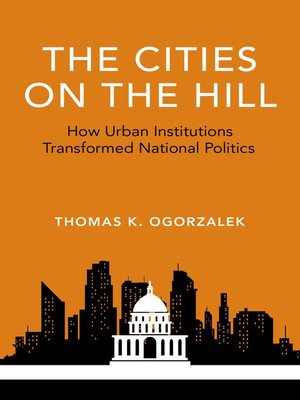The Cities on the Hill
ebook ∣ How Urban Institutions Transformed National Politics · Studies in Postwar American Political Development
By Thomas K. Ogorzalek

Sign up to save your library
With an OverDrive account, you can save your favorite libraries for at-a-glance information about availability. Find out more about OverDrive accounts.
Find this title in Libby, the library reading app by OverDrive.



Search for a digital library with this title
Title found at these libraries:
| Library Name | Distance |
|---|---|
| Loading... |
Over the second half of the 20th century, American politics was reorganized around race as the tenuous New Deal coalition frayed and eventually collapsed. What drove this change? In The Cities on the Hill, Thomas Ogorzalek argues that the answer lies not in the sectional divide between North and South, but in the differences between how cities and rural areas govern themselves and pursue their interests on the national stage. Using a wide range of evidence from Congress and an original dataset measuring the urbanicity of districts over time, he shows how the trajectory of partisan politics in America today was set in the very beginning of the New Deal. Both rural and urban America were riven with local racial conflict, but beginning in the 1930s, city leaders became increasingly unified in national politics and supportive of civil rights, changes that sowed the seeds of modern liberalism. As Ogorzalek powerfully demonstrates, the red and blue shades of contemporary political geography derive more from rural and urban perspectives than clean state or regional lines-but local institutions can help bridges the divides that keep Americans apart.







